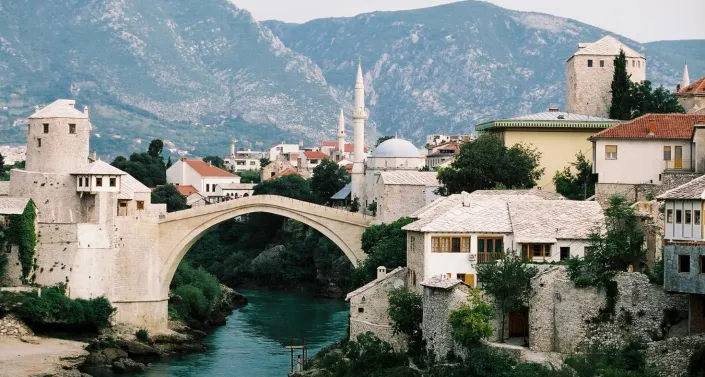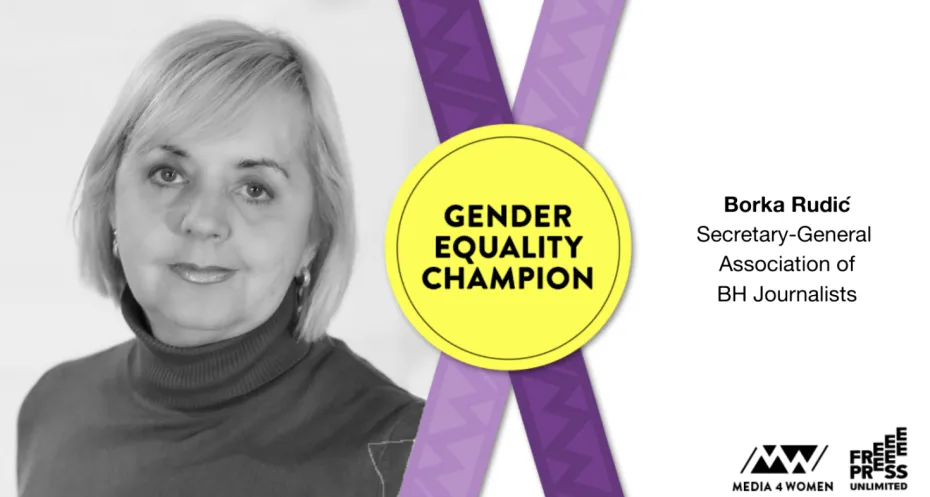
Bosnia and Herzegovina
Bosnia and Herzegovina is a country with a turbulent past. Home to three ethnic groups: Bosnians; Serbs; and Croats, the country is largely decentralized. Press freedom has always been a controversial topic and until two decades ago, defamation was included in the criminal law. In 2002, it became decriminalized, however, journalists still struggle to express themselves freely without getting into trouble. The country ranks 67 out of 180 countries in the RSF Press Freedom Index.
The Balkan region has a violent history. In 1992, the state broke with Yugoslavia and became independent, but until 2005, it was caught up in the Bosnian war. This had a damaging effect on the media landscape. The concentration of media ownership is a source of concern, especially as ownership is not transparent. After years of constitutional reforms, Bosnia and Herzegovina formally applied for EU membership in 2016. However, the country still has a lot of work to do; there need to be significant improvements in the areas of democracy, the rule of law, fundamental rights and public administrations before it can be admitted.
State of press freedom
A polarized political climate marked by constant verbal attacks and nationalist rhetoric, has created a hostile environment for media in Bosnia and Herzegovina and is harmful to press freedom. In 2019, in the report notes of the European Commission it states that in cases of threats and violence against journalists and media workers, the country fails to ensure independent and effective investigations and prosecutions. Also, journalists are attacked not only for what they write but also for their ethnic origins.
Safety of journalists
Although Bosnia and Herzegovina abolished defamation as a crime, officials still use civil suits to intimidate journalists and deter them from pursuing their work. This has a disturbing effect on freedom of expression and forces journalists increasingly into self-censorship. Journalists work under precarious employment conditions: they are hired on the basis of short-term contracts with poor payment. Changes need to be made to improve the safety of journalists and to contribute to an environment where freedom of expression is respected and can be exercised without fear or favour.
Our work in Bosnia and Herzegovina
If we are to promote press freedom, we need to create a safer environment for journalists and media. For that reason, we implemented the regional programme “Strengthening media freedom in Bosnia and Herzegovina, North Macedonia and Serbia”, in which Free Press Unlimited partners with local journalists' association BH Novinari, and with the Netherlands Helsinki Committee.
The programme focuses on enhancing the competencies of law enforcement, judicial authorities and journalists, and on creating a meaningful exchange between the judicial authorities and journalist associations. Journalists and judicial officials are trained in how to promote freedom of expression and ease pressure on journalists. Institutions must follow-up on threats and violence by applying or improving legislation on freedom of speech. This results in improved cooperation between associations of journalists and law enforcement, so they can respond adequately to threats against journalists. The programme helps judicial authorities gain a deeper understanding of how to apply relevant methods to investigate and prosecute these assaults on journalists.
Photo: Kashfi Halford.


